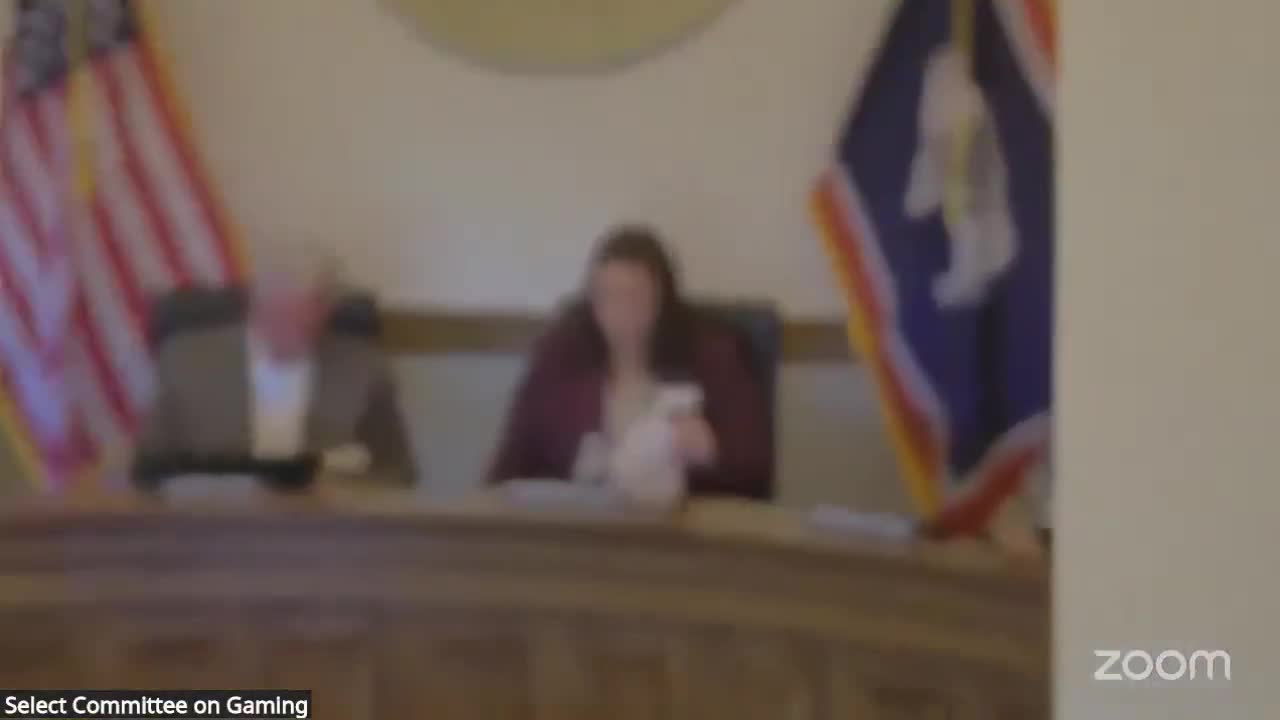Select Committee pauses moratorium debate after split votes; members debate 3‑year pause on new simulcasting permits
Get AI-powered insights, summaries, and transcripts
Subscribe
Summary
Lawmakers considered a draft moratorium that would bar new historic horse racing (HHR) and simulcasting permits from April 1, 2026, through March 31, 2029; the committee tabled the measure for further work after motions failed and later held the bill over for additional drafting and stakeholder input.
The Select Committee on Gaming on Oct. 14 debated a proposed temporary moratorium on new permits for simulcasting and historic horse racing terminals, but members did not immediately adopt the draft and later held it over for additional work.
The moratorium text under consideration (26 LSO 1 52) would bar the Wyoming Gaming Commission from issuing new permits, approving new premises by existing permit-holders, or authorizing increases in historic horse racing terminals above the number permitted as of April 1, 2026. The draft as described by Legislative Service Office staff would make the pause effective 04/01/2026 and end 03/31/2029. Tamara Rebley, staff to the committee, said the provision would not prevent routine renewals of existing permits that are not under suspension or revocation.
Why it matters: supporters of limits say the pause would give lawmakers time to consider local control and other regulatory changes; opponents say a moratorium would disproportionately harm one new entrant that has not yet placed machines. Representative John Johnson raised that concern on the floor, saying the draft “would adversely affect one entity more adversely than the rest of them,” referring to Cowboy Racing.
Committee discussion and votes: the committee took a series of procedural votes on the moratorium. An early motion to table the moratorium until the other two related bills could be considered failed after the committee voted; the draft was then further discussed. Later in the meeting members voted to hold the moratorium bill over for additional work and to return to it after reviewing the other two bills on the agenda.
Commission and operational timing: Director Nick Laramendi of the Wyoming Gaming Commission advised the committee that the commission considers annual permit applications at a fall meeting (generally in November) and asks that off-track wagering location applications be filed at least 60 days before a scheduled meeting to permit vetting. Laramendi said vetting of a new HHR machine application typically takes about 60–90 days.
Industry and public comment: public commenters included representatives of Cowboy Racing and the skill-games industry. Affie Ellis of Cowboy Racing told the committee the company applied for 282 machines and said a moratorium would “disproportionately affect us” because Cowboy Racing’s business plan relies on terminal revenue to support a new track. Will Edwards of Cowboy Racing urged caution, saying a moratorium could “halt that progress and squander that opportunity for the state.”
Other stakeholders urged more study. Mike Mosher of the Wyoming State Liquor Association recommended considering “sideboards” (sales-percentage limits) for package‑liquor locations rather than a broad moratorium to avoid imposing harsh limits on small businesses. Several county and municipal officials urged better notice and local input processes rather than an immediate statewide pause.
Where the measure stands: the committee did not enact a moratorium during the Oct. 14 meeting. Members directed LSO and stakeholders to continue drafting and said they want to consider the topic alongside two related bill drafts (26 LSO 1 45 and 26 LSO 1 68). The committee also asked the Gaming Commission to consider immediate changes to public-notice practices for skill-based amusement games while the legislature works on statutory changes.
Looking ahead: committee chairs said the moratorium draft remains a tool to slow the growth of machines if local-control bills do not advance, but several members said more time and more precise drafting are needed before the legislature adopts a pause.
